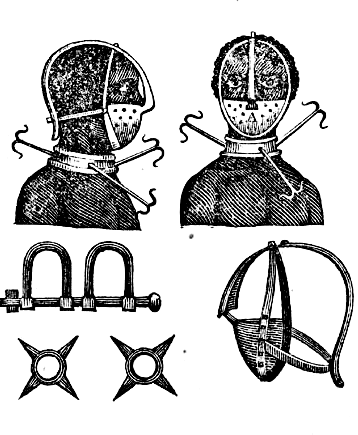Thomas Paine was raised in England, the son of a Quaker tradesman. He had not found a stable position in his home country, and decided in middle age to emigrate. He was introduced to Benjamin Franklin, who facilitated Paine's move to the Pennsylvania colony and employment as a newspaper editor. He arrived in Philadelphia in 1774 and immediately threw himself into the turbulent politics of the period. His essays in 1775 covered a range of topics and attracted a readership. In 1776, he published him pamphlet, Common Sense, calling for American independence and the rejection of Old World monarchies and aristocracies. The pamphlet was a sensation and immediately made Paine one of the most famous man in the colonies. Among his newspaper essays of 1775 was this one denouncing slavery, and particularly criticizing those who would try to use Christian Scriptures to defend the institution.
That some desperate wretches should be willing to steal and enslave men by violence and murder for gain, is rather lamentable than strange. But that many civilized, nay, Christianized people should approve, and be concerned in the savage practice, is surprising; and still persist, though it has been so often proved contrary to the light of nature, to every principle of justice and humanity, and even good policy, by a succession of eminent men, and several late publications.

Our traders in men (an unnatural commodity!) must know the wickedness of that slave-trade, if they attend to reasoning, or the dictates of their own hearts; and such as shun and stifle all these, willfully sacrifice conscience, and the character of integrity to that golden idol. . . . .
Such men may as well join with a known band of robbers, buy their ill-got goods, and help on the trade; ignorance is no more pleadable in one case than the other; the sellers plainly own how they obtain them. But none can lawfully buy without evidence that they are not concurring with men-stealers; and as the true owner has a right to reclaim his goods that were stolen, and sold; so the slave, who is proper owner of his freedom, has a right to reclaim it, however often sold.
Most shocking of all is alleging the sacred Scriptures to favor this wicked practice. One would have thought none but infidel cavilers would endeavor to make them appear contrary to the plain dictates of natural light, and conscience, in a matter of common justice and humanity; which they cannot be. Such worthy men, as referred to before, judged otherways; Mr. Baxter declared, the Slave-Traders should be called Devils, rather than Christians; and that it is a heinous crime to buy them. But some say, "the practice was permitted to the Jews." To which may be replied,
So monstrous is the making and keeping them slaves at all, abstracted from the barbarous usage they suffer, and the many evils attending the practice; as selling husbands away from wives, children from parents, and from each other, in violation of sacred and natural ties; and opening the way for adulteries, incests, and many shocking consequences, for all of which the guilty masters must answer to the final Judge.
If the slavery of the parents be unjust, much more is their children's; if the parents were justly slaves, yet the children are born free; this is the natural, perfect right of all mankind; they are nothing but a just recompense to those who bring them up: And as much less is commonly spent on them than others, they have a right, in justice, to be proportionably sooner free.
Certainly, one may, with as much reason and decency, plead for murder, robbery, lewdness and barbarity, as for this practice. They are not more contrary to the natural dictates of conscience, and feeling of humanity; nay, they are all comprehended in it.
But the chief design of this paper is not to disprove it, which many have sufficiently done; but to entreat Americans to consider.
Perhaps some could give them lands upon reasonable rent, some, employing them in their labor still, might give them some reasonable allowance for it; so as all may have some property, and fruits of their labors at their own disposal, and be encouraged to industry; the family may live together, and enjoy the natural satisfaction of exercising relative affections and duties, with civil protection, and other advantages, like fellow-men.
Perhaps they might sometime form useful barrier settlements on the frontiers. Thus they may become interested in the public welfare, and assist in promoting it; instead of being dangerous, as now they are, should any enemy promise them a better condition.
These are the sentiments of JUSTICE AND HUMANITY.